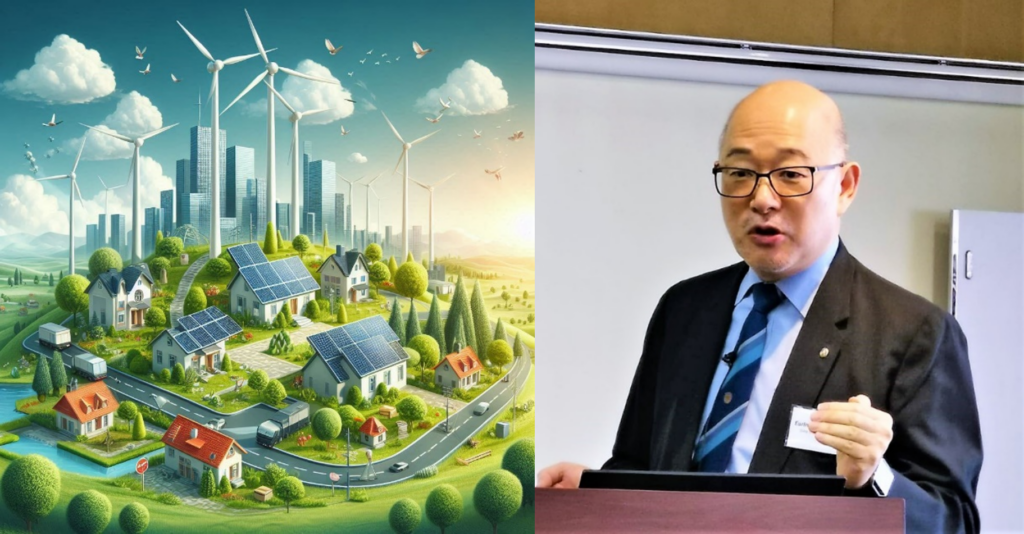IP, Clean Energy, SDG and ESG Linkages
There are important linkages between IP, Clean Energy, the Sustainable Development Goals (SDGs), and Environmental, Social, and Governance (ESG). This article will examine these linkages and analyze their important implications for companies and governments globally. Key improvement suggestions for leading companies to achieve some important SDGs & ESG targets will be proposed.
Key Linkages:
IP and Clean Energy include the intellectual property (IP) protection relating to clean energy technologies, such as renewable energy, energy efficiency, and carbon capture and storage.
The development and deployment of these clean energy technologies are closely linked to the achievement of the United Nations Sustainable Development Goals (SDGs) and ESG reporting. They are also critical requirements for countries and companies to meet their Paris Agreement commitments.
Intellectual Property (IP) plays very important and crucial roles in advancing the various Sustainable Development Goals (SDGs) and Environmental, Social, and Governance (ESG) criteria globally.
IP helps to promote innovation globally by protecting and incentivizing the creation of new technologies and innovative solutions that will help to address important global challenges such as climate change, poverty, and inequality.
A good example is that international patents are helping to drive the development of green technologies globally, whilst trademarks and certifications are helping to promote sustainable products and international developments of sustainability practices.
In the context of SDGs, IP can help to achieve specific SDG goals like affordable and clean energy (SDG 7), industry innovation and infrastructure (SDG 9), and climate action (SDG 13). Appropriate IP helps to ensure that the innovators receive the appropriate recognition and financial returns, thus encouraging further research and developments globally.
With regard to ESG, IP can help to contribute to the “Environmental” aspects by protecting innovations that reduce environmental impacts. It can also help to support the “Social” aspects by enabling access to essential technologies and medicines, thus fostering inclusive sustainable growths.
For the “Governance,” aspects, robust IP frameworks will help to ensure transparency and ethical management of innovations globally. These will help to align corporate practices with sustainable and responsible business standards plus promote international cooperations.
Key SDGs:
Specifically, IP of Clean Energy technologies can contribute to the following four important SDGs:
- SDG 7: Affordable and Clean Energy:
IP of Clean Energy innovations can help to expand global access to various affordable, reliable, and sustainable clean energy sources. These are key drivers for economic and social development globally. In addition over 1 billion people globally currently do not have reliable access to electricity supplies. This is seriously undermining their standards of living & social developments.
- SDG 13: Climate Action:
The widespread adoption of clean energy technologies facilitated by IP can help to mitigate the negative climate change impacts globally by reducing greenhouse gas emissions. These will also promote the transition to low-carbon economies by countries globally. Renewable and clean energy developments have been shown to generate over 10 million new green jobs in various developed and developing countries globally. These are helping to promote climate actions plus economic and social developments globally.
- SDG 9: Industry, Innovation, and Infrastructure:
IP of Clean Energy are helping to support the development of important innovative technologies. These are helping to significantly reduce the costs of green electricity generation by renewables globally. International experts have shown that the costs of green electricity generation by renewables are now competitive to the brown electricity generated by fossil fuels.
In addition innovations have helped to improve and strengthen energy infrastructures, e.g. national grid systems, so that they can better support the clean energy transitions in various countries. These will help to achieve having sustainable clean energy systems globally.
- SDG 11: Sustainable Cities and Communities:
IP of Clean Energy are helping to contribute to the development of more sustainable and resilient smart cities globally. Various innovations are enabling the better integration of renewable energy plus the development of more energy-efficient buildings and low-emission transportation solutions.
From the Environmental, Social, and Governance (ESG) perspectives, IP of Clean Energy are helping to align with the following key ESG targets and considerations globally:
Environmental:
- Reduced greenhouse gas emissions and environmental impacts from energy productions and uses
- Improved resource efficiency and conservation of natural resources
- Reduced pollution globally by reducing GHG emissions by promoting clean energy applications
Social:
- Improving access to affordable and reliable clean energy and clean electricity, especially in remote, underserved communities in various developing countries globally
- New jobs and new green economic opportunities in the clean energy sectors are being generated in various developed and developing countries globally
Governance:
- Policies and regulations that promote the development and deployment of clean energy technologies globally are being enacted by various countries in line with their Paris Agreement commitments
- Transparent and ethical practices in the management and commercialization of clean energy IP globally by various leading companies plus their management and CEOs are being accelerated
International Implications & Cases:
By better understanding of the linkages between IP and Clean Energy, plus the SDGs, and ESG principles, then CEOs, organizations and policymakers can more effectively harness the power of intellectual property to drive sustainable developments and the transition to a low-carbon economy globally.
To illustrate these important linkages, there are a few important real life international examples of how IP of Clean Energy has contributed to achieving specific SDG & ESG targets globally:
- SDG 7: Affordable and Clean Energy
Case Example: Off-grid solar technologies in Sub-Saharan Africa
- Various IP for new affordable and efficient solar photovoltaic (PV) systems and battery storage technologies have enabled the deployment of off-grid solar solutions in remote, underserved areas of Sub-Saharan Africa
- These have helped to expand communities access to clean, reliable, and affordable electricity, especially for remote communities in developing countries globally
- This is directly contributing to SDG 7.1 (universal access to affordable, reliable, and modern energy services)
- SDG 13: Climate Action
Case Example: Carbon capture and storage (CCS) technologies in industrial applications
- IP advancements in CCS technologies have enabled the capture and sequestration of CO2 emissions from various industrial processes, including cement and steel production
- The deployment of these CCS technologies in various countries have helped to reduce greenhouse gas emissions globally
- These are contributing to SDG 13.2 (integrate climate change measures into national policies, strategies, and planning)
- SDG 9: Industry, Innovation, and Infrastructure
Case Example: Wind turbine design and manufacturing in India
- IP related to new wind turbine blade design, materials, and manufacturing processes has supported the growth of the wind energy industry in India
- This has contributed to the development of innovative wind energy infrastructure and the strengthening of the country’s industrial capabilities plus new green jobs creation across India
- These are aligning well with SDG 9.4 (upgrade infrastructure and retrofit industries to make them sustainable)
- SDG 11: Sustainable Cities and Communities
Case Example: Energy-efficient building technologies in Europe
- Various IP of innovations relating to new building automation systems, insulation materials, and energy-efficient appliances have enabled the development and deployment of energy-efficient buildings in urban areas across Europe
- These have helped to improve the sustainability and resilience of smart city developments across EU countries
- These are directly contributing to SDG 11.6 (reduce the adverse per capita environmental impact of cities)
So, these important real life international examples are helping to demonstrate how the strategic management and deployment of IP of innovations in Clean Energy technologies can help to drive positive progress towards specific SDG targets globally. These are helping to highlight the crucial roles of intellectual property in achieving sustainable development goals and ESG considerations in various developing and developed countries globally. Looking ahead it is important that we should work urgently together to promote faster international clean energy innovations and their IP so as to directly contribute to the various important SDG and ESG goals and targets globally.
About the blogpost author:
 EurIng. Henry K. H. Wang is an international executive, author & speaker with extensive high level business experience globally. He is President of Gate International & was a former director of both Shell China and SABIC in Riyadh. He is a Fellow of the Royal Society of Arts FRSA & Fellow of the Institute of Chemical Engineering. He is a board member of London University SOAS SCI Advisory Board. He has been invited to join the G20/B20 International Taskforces & Action Councils. He has also been invited to join the IASE Advisory Committee plus the I3PM SDG/ESG Committee. He has published over 100 papers and speeches plus 6 books globally. His negotiation paper was selected as one of the Top Five UK Management Papers of the Year. He has been invited to speak at international conferences plus lectures at leading universities and business schools globally. He is advising leading international organisations and companies on management, leadership, Climate, SDG, ESG and sustainability.
EurIng. Henry K. H. Wang is an international executive, author & speaker with extensive high level business experience globally. He is President of Gate International & was a former director of both Shell China and SABIC in Riyadh. He is a Fellow of the Royal Society of Arts FRSA & Fellow of the Institute of Chemical Engineering. He is a board member of London University SOAS SCI Advisory Board. He has been invited to join the G20/B20 International Taskforces & Action Councils. He has also been invited to join the IASE Advisory Committee plus the I3PM SDG/ESG Committee. He has published over 100 papers and speeches plus 6 books globally. His negotiation paper was selected as one of the Top Five UK Management Papers of the Year. He has been invited to speak at international conferences plus lectures at leading universities and business schools globally. He is advising leading international organisations and companies on management, leadership, Climate, SDG, ESG and sustainability.



